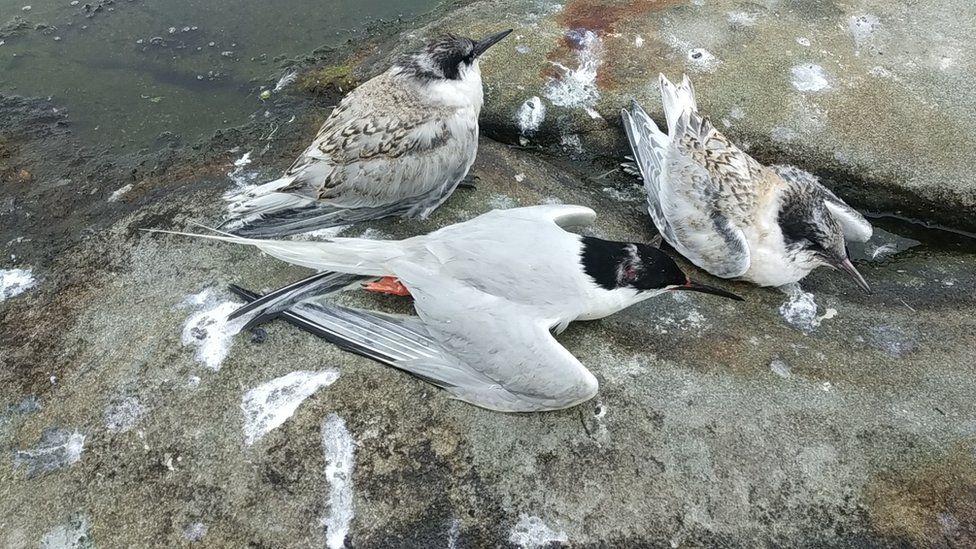
RSPB wardens on Coquet Island have called for more research into bird flu after observing how some seabirds appear to have developed immunity.
The sanctuary is located a mile off the Northumberland coast and is a breeding ground for up to 80,000 seabirds.
Since bird flu was confirmed in June, black-headed gulls, common terns and rare roseate terns have been worst hit.
But the sandwich terns have not been affected despite the virus having a "catastrophic" effect on them in 2022.
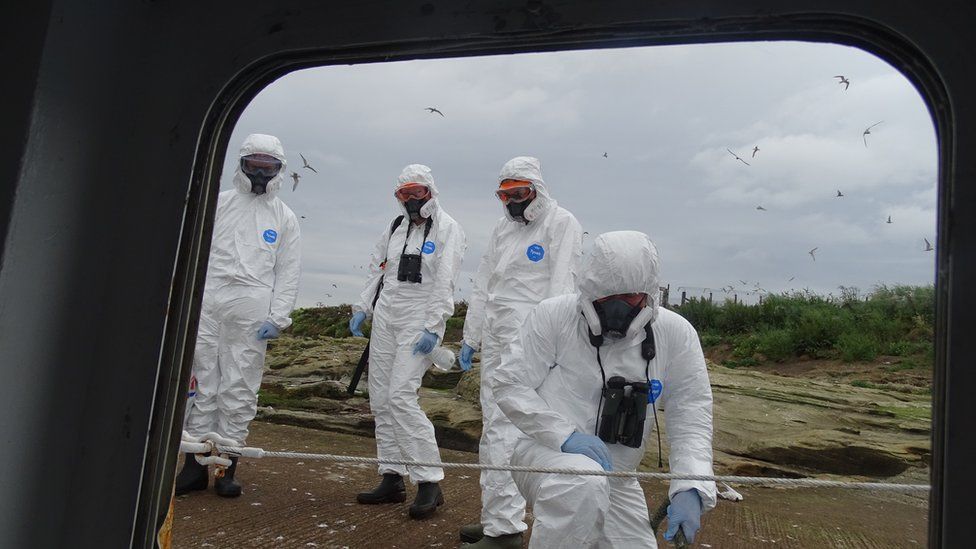
Site manager Stephen Westerberg said more research into the immunity of seabirds was needed as "as some breeds are coping better than others."
This year, the sandwich terns returned to a new colony they established late last year after bird flu wiped out their previous breeding site last July.
Although the numbers of returning birds had halved from 2022, the chicks fledged early, moving away from the breeding area on to the shoreline, from where they are expected to leave soon.
It is in a stark contrast to the black headed gull population which has been badly hit.
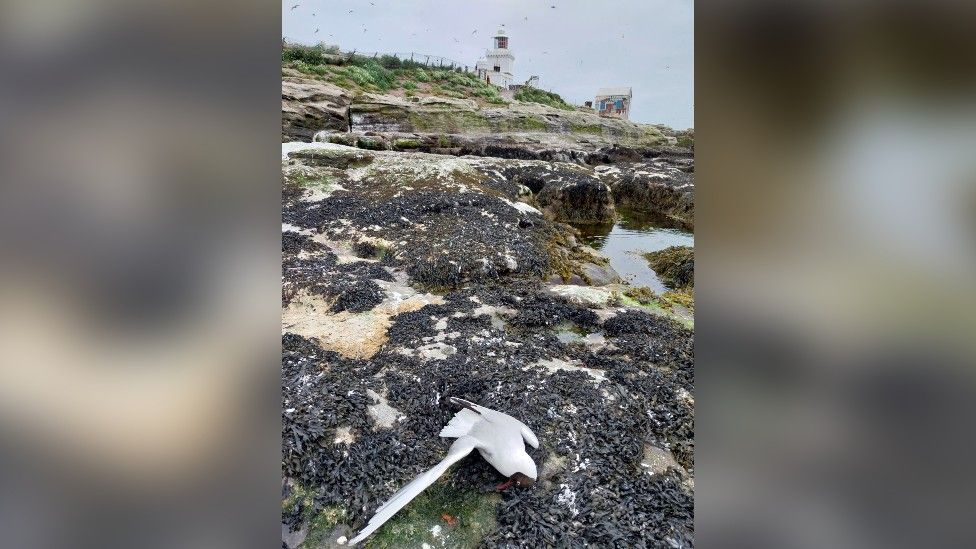
Mr Westerberg said about 5,000 black headed gulls had succumbed to bird flu, with only a handful of fledged juveniles surviving.
Common terns and Arctic terns have also been affected by the virus.
"Every time I visited there were just more and more dead adults and chicks lying around but, on the last visit at the beginning of July, we had some large chicks looking healthy and fledged chicks," Mr Westerberg said.
"So some common terns have managed to fledge young and that perhaps points towards immunity.
"More Arctic tern pairs moved here this year to nest, compared to last year, but the breeding ground looked empty the last time we were there.
"So it looks like the virus has come in different waves and affected different species."
About 108 pairs of roseate terns returned and, although many chicks were found to have died within their nest boxes, some fledged roseate terns have been ringed so their survival can be monitored.
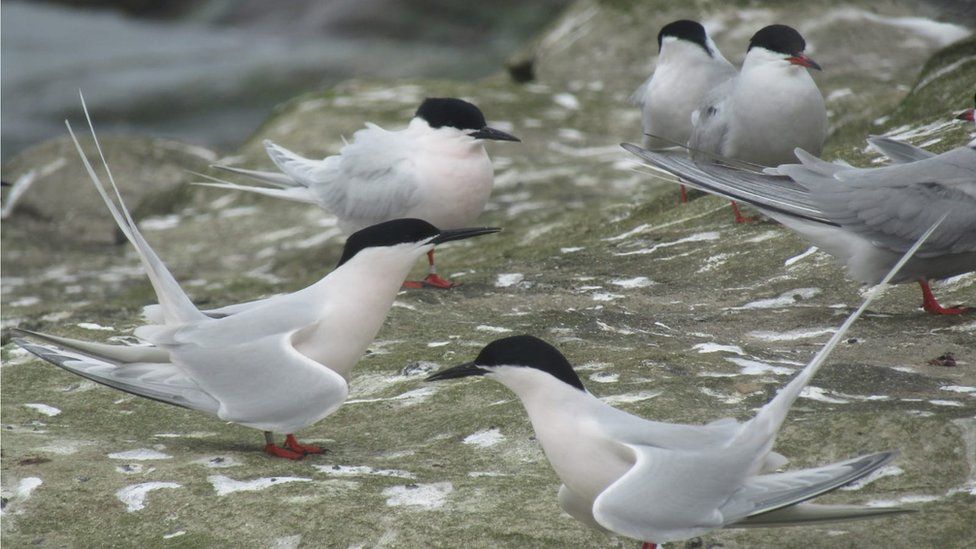
Wardens have been unable to live on the island since bird flu was confirmed. Instead they have been monitoring by visits.
Mr Westerberg, who took up his post mid June, said: "Had I taken on this job without bird flu it would have been unbelievably fantastic doing all the seabird monitoring.
"But, because of bird flu, it's frustrating dealing with it, for good reasons, as it's restricting what we're trying to do with monitoring, as it wouldn't be safe for the birds and it wouldn't be safe for us."
He is hopeful funding can be secured for environmental monitoring at Coquet, with research carried out into whether the virus remains in the ground.
The RSPB is in discussion with Natural England about securing government money.
Natural England has been approached for comment.
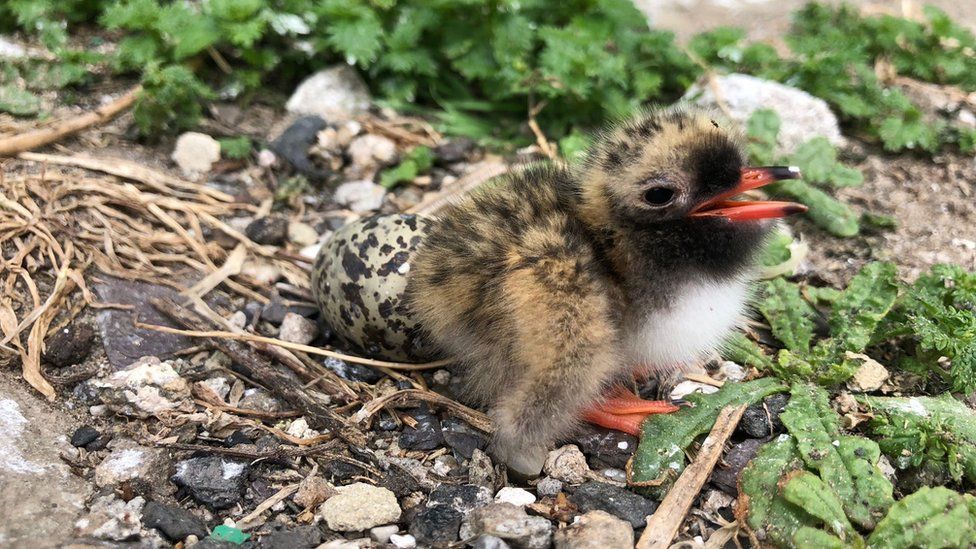

Follow BBC North East & Cumbria on Twitter, Facebook and Instagram. Send your story ideas to northeastandcumbria@bbc.co.uk.
Related Topics
"bird" - Google News
August 03, 2023 at 12:41PM
https://ift.tt/vQmHAPa
Coquet Island seabirds observed with signs of bird flu immunity - BBC
"bird" - Google News
https://ift.tt/6rWi7xk
https://ift.tt/qlFg7Ee
Bagikan Berita Ini














0 Response to "Coquet Island seabirds observed with signs of bird flu immunity - BBC"
Post a Comment